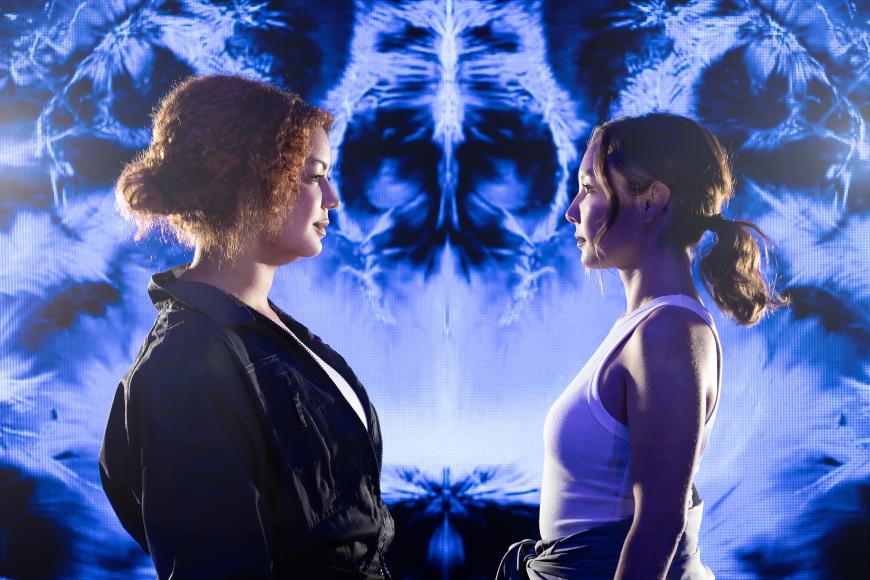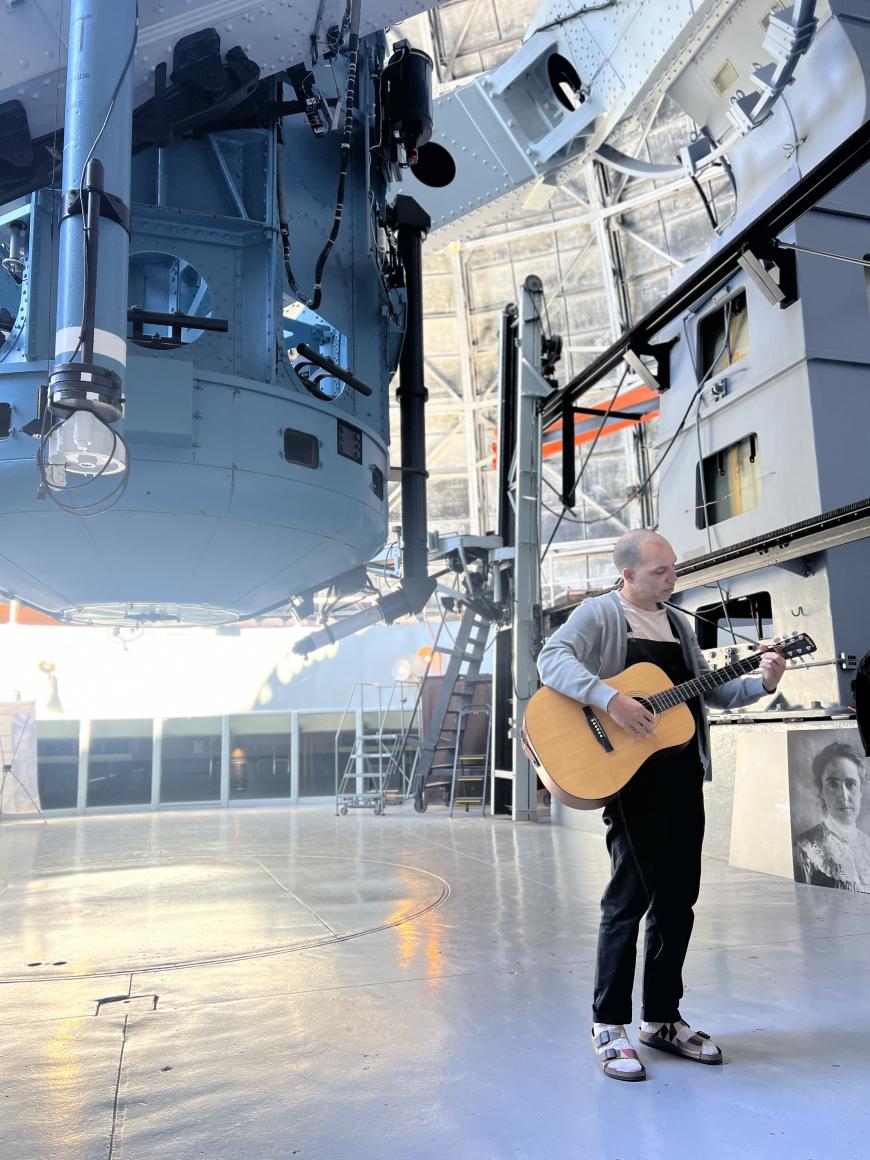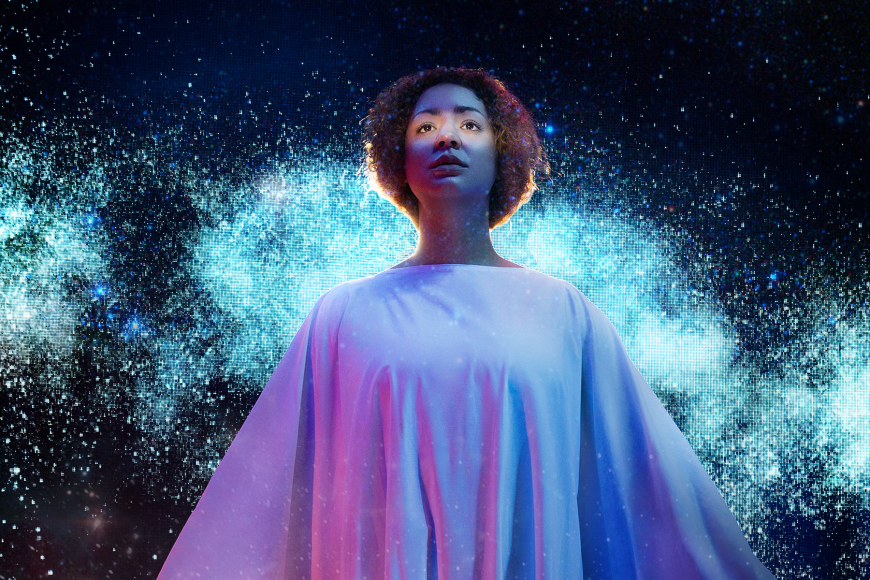
Buckle up, folks, for a cosmic mission. A starship crew seeks refuge on the hostile Planet 85K: Aurora, where colonists will encounter intelligent life imperceptible to their all-too-human awareness.
Seriously, The Industry — the experimental company that has been expanding the operatic form since its founding by Yuval Sharon in 2010, with groundbreaking works including the Pulitzer Prize-nominated Invisible Cities (2013) and the 24-limousine opera Hopscotch (2015) — is presenting the world premiere of Star Choir.
Taking place inside the historic Mount Wilson Observatory for four performances Sept. 30 – Oct. 1, the chamber opera is composed by Malik Gaines, with a libretto by Alexandro Segade. In essence, the work offers a meditation on the challenges and pleasures of mutual coexistence, reimagining humanity as a permeable class that must transform to survive. Heady stuff, but with inspiration taken from Octavia Butler’s Xenogenesis series, as well as Ridley Scott’s Alien and the anime classic Neon Genesis Evangelion, the opera promises to be both intriguing and mind-expanding.

Gaines — who, with Sharon and sonic artist Ash Fure, serves as part of The Industry’s artistic director cooperative — explained: “We wanted to use the science-fiction genre as a way to talk about historical projects — colonization, who’s considered a human along the way, and how might we carry that path with us. Humans would have to undergo some changes and become part of that symbiotic planet.
“To tell the story,” Gaines said, “the singers take on points of view of human colonists but also play stars, different species on the planet, microbes. Everyone takes to it really well. The music shifts a bit stylistically, and my style is eclectic because I like to incorporate a lot of references and influences.”
Gaines, the son of artist and educator Charles Gaines, pointed out that while Butler’s theories have inspired the Star Choirteam, which has also read a lot of Ursula K. Le Guin and other sci-fi classics, audiences don’t necessarily need to be conversant with these tomes to appreciate the opera. “We all have watched Star Wars and Alien. Everybody’s a little bit familiar with this genre, but the plot is our own. It takes up conventions of the genre, but it’s not adopting it.”
Gaines, who also co-directs the piece with Segade, his partner of many decades, said that their process was “pretty organic. I really enjoy getting a text first and setting that to music. He [Segade] wrote a set of poems to start this off — speculating about the past and future and intergalactic travel. As we developed it, I wrote more pieces to move along the plot and characters and set them to music.”
And it’s the music that will elevate these performances that take place under the observatory’s sprawling domed ceiling, with audiences seated on an elevated observation platform that will occasionally rotate, meaning the area alone is sure to dazzle. Led by Music Director Marc Lowenstein, Star Choir features eight singers, among them soprano Kelci Hahn, mezzo-soprano Sarah Beaty, and tenor Jon Lee Keenan, and eight musicians, among them upright bassist Marlon Martinez and hornist Malik Taylor. The work has a run time of about 70 minutes.

“The space is so amazing,” noted Gaines, who studied piano before moving into experimental performance and has a Ph.D. in theater and performance studies from UCLA. “And it’s very resonant, so we imagine that things might have to slow down [musically].”
Founding members of the leading performance collective My Barbarian (with Jade Gordon), Gaines and Segade both also teach in the visual art department at UC San Diego. For Star Choir, they workshopped the opera during several residencies, including in 2019 at the Park Avenue Armory, where, Gaines recalled, “we were able to listen to it and see it in a concert version.
“We also did a workshop with The Industry in L.A. last year,” he recalled. “That’s been the incredible thing about joining a nontraditional company. They know how to support experimental work and interdisciplinary artists like me. They offer support — moral support, money, producers, people who have the right gear, and stage management. A lot of experimental performances don’t have those resources.”
Currently, there are no plans for Star Choir to tour, but the company is filming it with a video crew for a version that will premiere at the Hammer Museum on Jan. 24, 2024. In any iteration, the work addresses the questions “what does it mean to be human?” and “why do we even want to be human?”

Gaines explained: “People are questioning how a species gets assigned, and I think the proposal in Star Choir is that there’s always some loss, some pain, and some damage. And then you evolve. You don’t always heal all the way, but there is a future.”
As for what he wants audiences to take away from the chamber opera, Gaines reflected for a moment before replying. “I do think about the kind of complexity [involved] in surviving a serious crisis moment, and people relate to the idea of our society being in a place of difficulty — environmentally, socially.
“People are ready for these stories,” he asserted. “What do we take with us? What comes next? The music is so beautiful to engage with, if I do say so myself. It’s kind of a pleasure for me, so I hope audiences take that with them, too — the pleasure of the music and trying to move through these questions as a group.”




